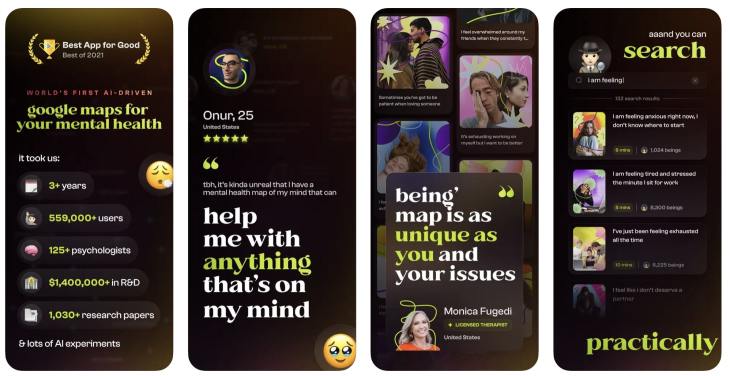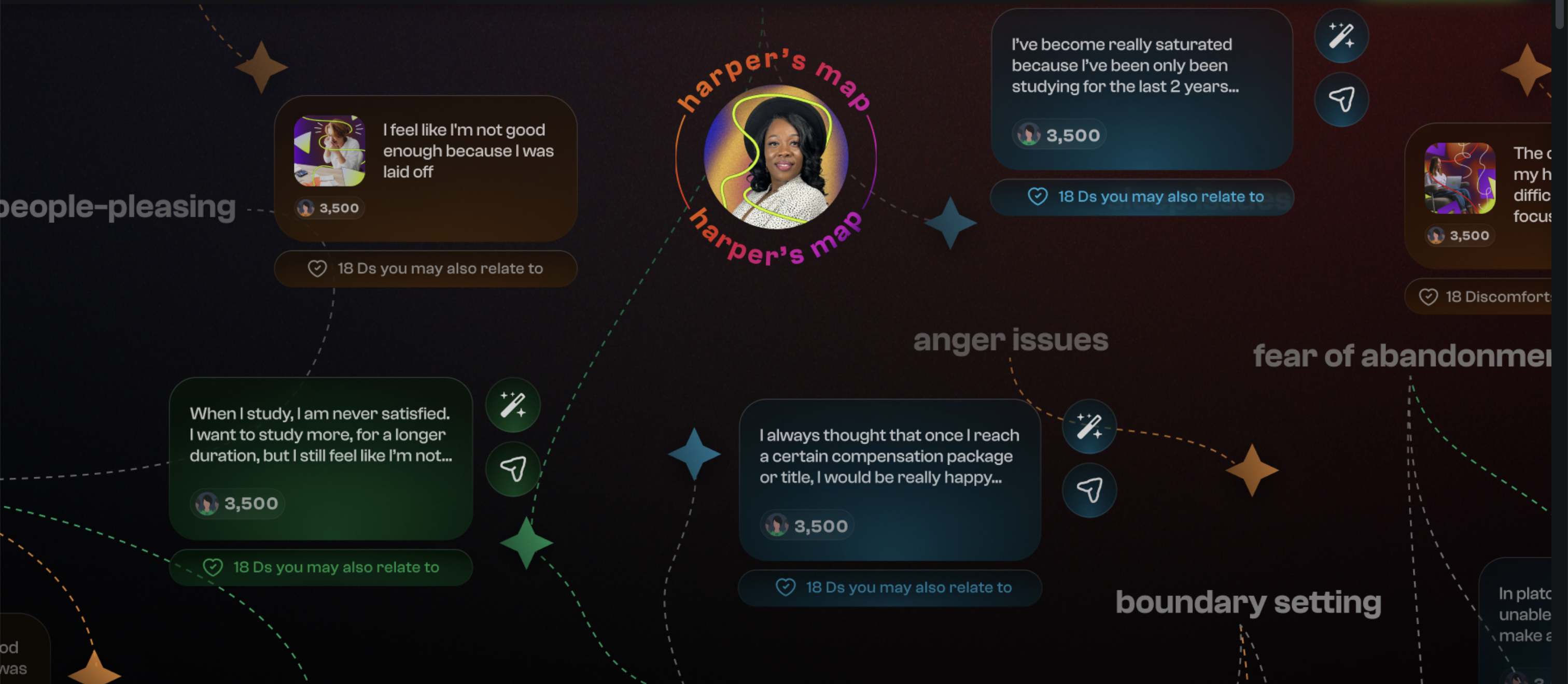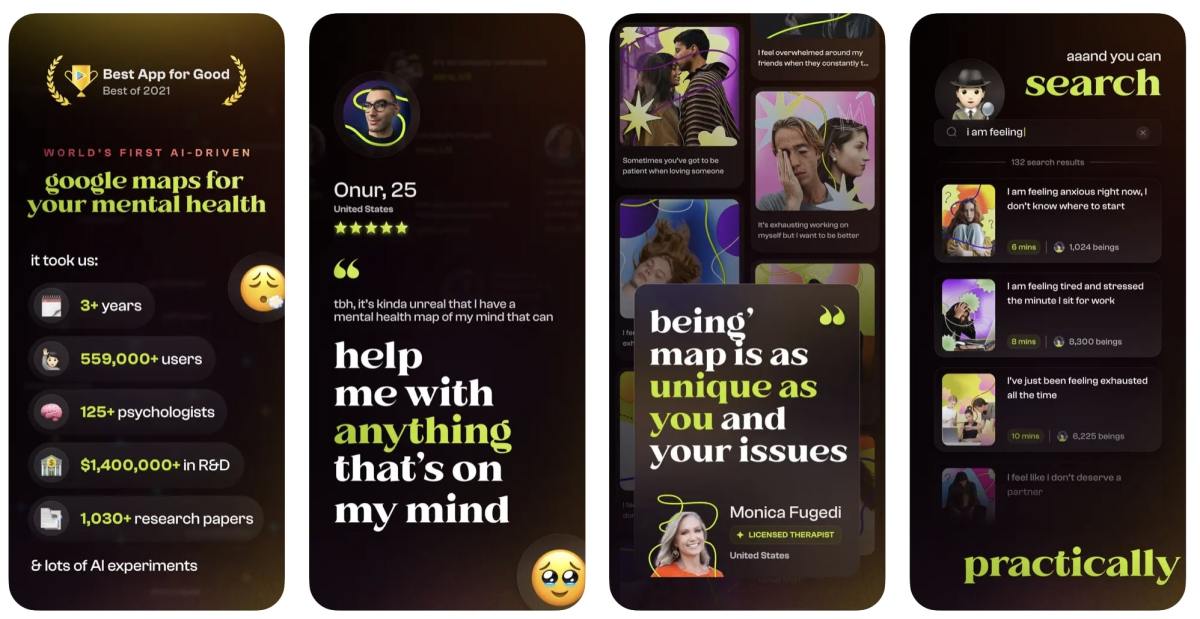
Being, a Delaware-based startup, is on a mission to scale its mental health app, which aims to help users create a map of their concerns to better navigate their everyday issues.
The company, which exhibited as part of the Battlefield 200 at TechCrunch Disrupt, was founded in 2020 by CEO Varun Gandhi and CTO Abhishek Sharma. The idea for Being stems from Gandhi’s personal experience dealing with anxiety growing up and being unable to find treatments that worked for him.
To get started with the app, you can search for any sort of issues or feelings that you’re currently experiencing. For instance, you can start with “I’m not feeling too great about myself today.” You can then add any additional things you’re experiencing such as “My physical health doesn’t feel great.” If you search for a concern that has not already been added to the map by another user, you can create a new entry.
Once you have added your issues, you can build a map to see an overview of the different things you want to work on. From there, the map will try to make connections in order to give you a bigger picture on why you may be feeling a certain way.
“The map is only growing as people are sharing more and more of their issues,” Gandhi said. “People are moving from one thing to another and the map is developing all kinds of dynamic connections.”
Once you have mapped out your concerns, you can start to address them.

Image Credits: Being
Being currently offers three different ways for users to work through their mental health concerns. The first option is mini interactive therapy sessions designed by licensed mental health professionals that focus on things like Mindfulness-Based Cognitive Therapy (MBCT).
The second option is an AI-powered journaling session where you are given certain prompts to reflect on what you’re currently going through. As you start to write, the AI will prompt you with additional questions. Gandhi says the app only features basic AI features because the startup does not want to attempt to replace legitimate science-backed therapy with AI.
The third option is something that Gandhi refers to as a “quick bite” of science-based psycho education that is aimed toward people who don’t have a lot of time to spend on the app but want to quickly understand why they may be feeling a certain way.
Gandhi believes that it’s important to approach mental health from the ground up and start from what a person is currently feeling without automatically giving them labels and boxing them into a specific concern like depression or anxiety.
“We don’t wait for people to go and seek help, we try to approach mental health from the ground up and start from where the person currently is,” Gandhi told TechCrunch in an interview. “We start to see mental health as what the person is experiencing at any point in time, because most of us are not okay in different ways.”
Although the company believes that its app is geared toward any and every one, some people may find the open-ended care model a bit difficult to navigate if they’re used to more direct versions of mental healthcare.
Being is available on both iOS and Android and offers two different subscription tiers. The first tier costs $9.99 per month and offers a DIY experience, while the second tier costs $19.99 and comes with additional support and one-on-one chats with a mental health professional.
The company is currently in the midst of closing a $3 million seed round; it previously raised two pre-seed rounds led by Multiply Ventures and Better Capital in 2021 and 2022 that totaled $1.4 million in funding.

